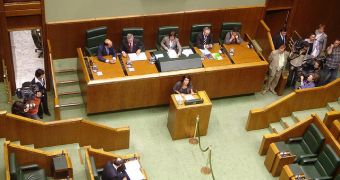More than 93,000 usernames and passwords belonging to Swedish politicians, reporters and bloggers were leaked in what seems to be the largest security breach the Scandinavian country has ever seen.
According to Falkvinge, William Petzäll, an independent member of the parliament, started posting messages on Twitter in which he revealed emails and passwords of public figures.
Petzäll believed that by possessing this information, the Democratic Party managed to obtain a place in parliament last year.
Rick Falkvinge, the founder of the first Pirate Party was among the victims, confirming that the password was indeed correct.
Fortunately for him, he never utilized the leaked password to guard sensitive data, but others were not so lucky. It looks as reporters from all over Sweden began claiming that the codes they used to protect their most private information have ended up online.
Even more shocking is that while the tweets were posted, Petzäll was locked up in a drug rehabilitation facility with no Internet connectivity.
It later turned out that in fact the politician had nothing to do with the posts nor with the credential theft. The whole disaster was a result of a blog ranking website breach.
Bloggtoppen, which was immediately closed, stored a database that contained the passwords and emails of 93,678 public figures and, as a result of a hacking operation, they all ended up in some cybercriminal's hands.
So far it's not known who was the person who posted the messages on the politician's behalf, but it turns out that the information was published online more than a month ago and anyone could have spotted it and used it to their own liking.
This is why it's important to use different passwords on different websites. All the people that suffered as a result of the breach did so because they utilized the same credentials on multiple sites, fact which allowed for any cyber mastermind (and not just) to access their assets.

 14 DAY TRIAL //
14 DAY TRIAL //